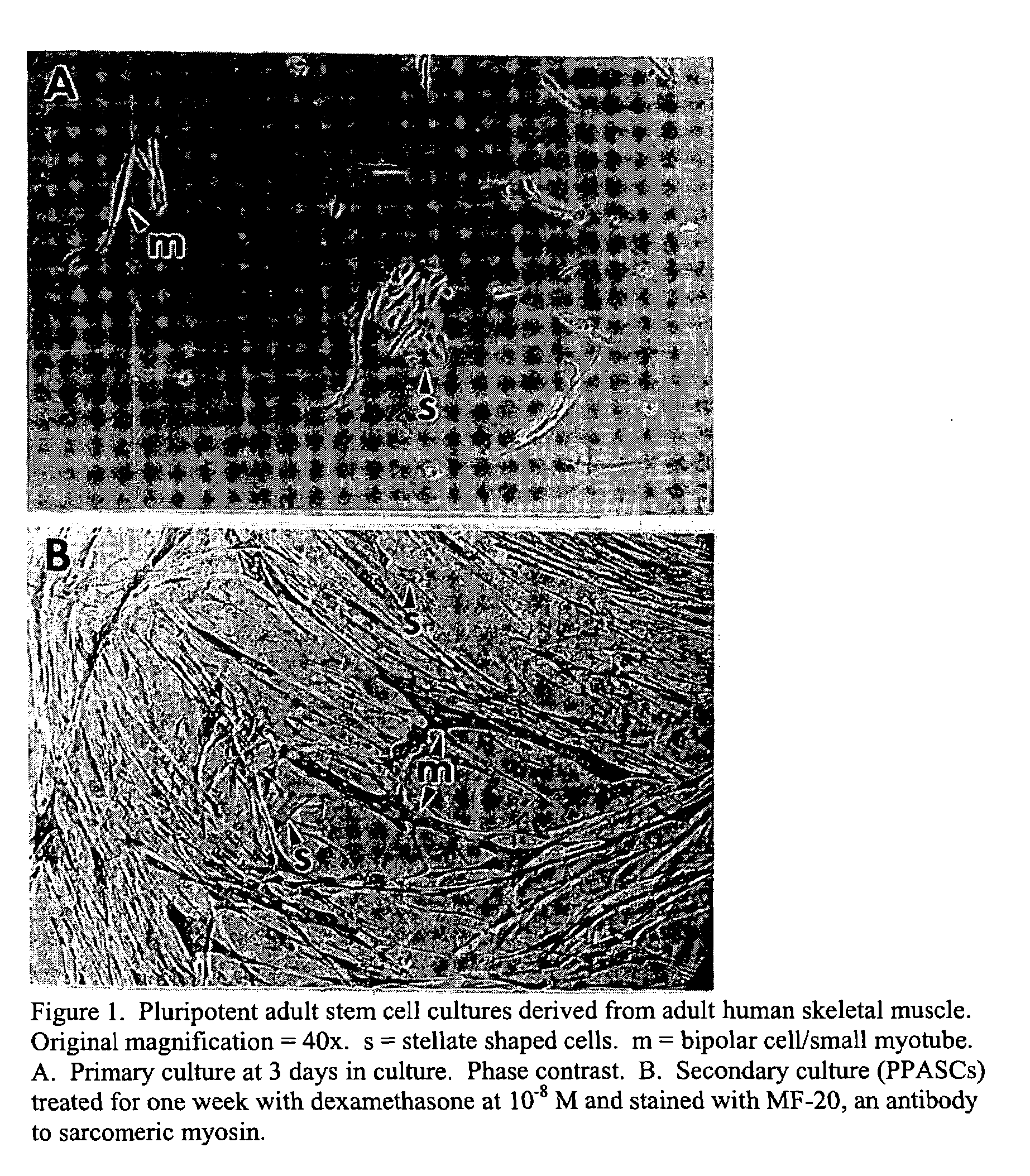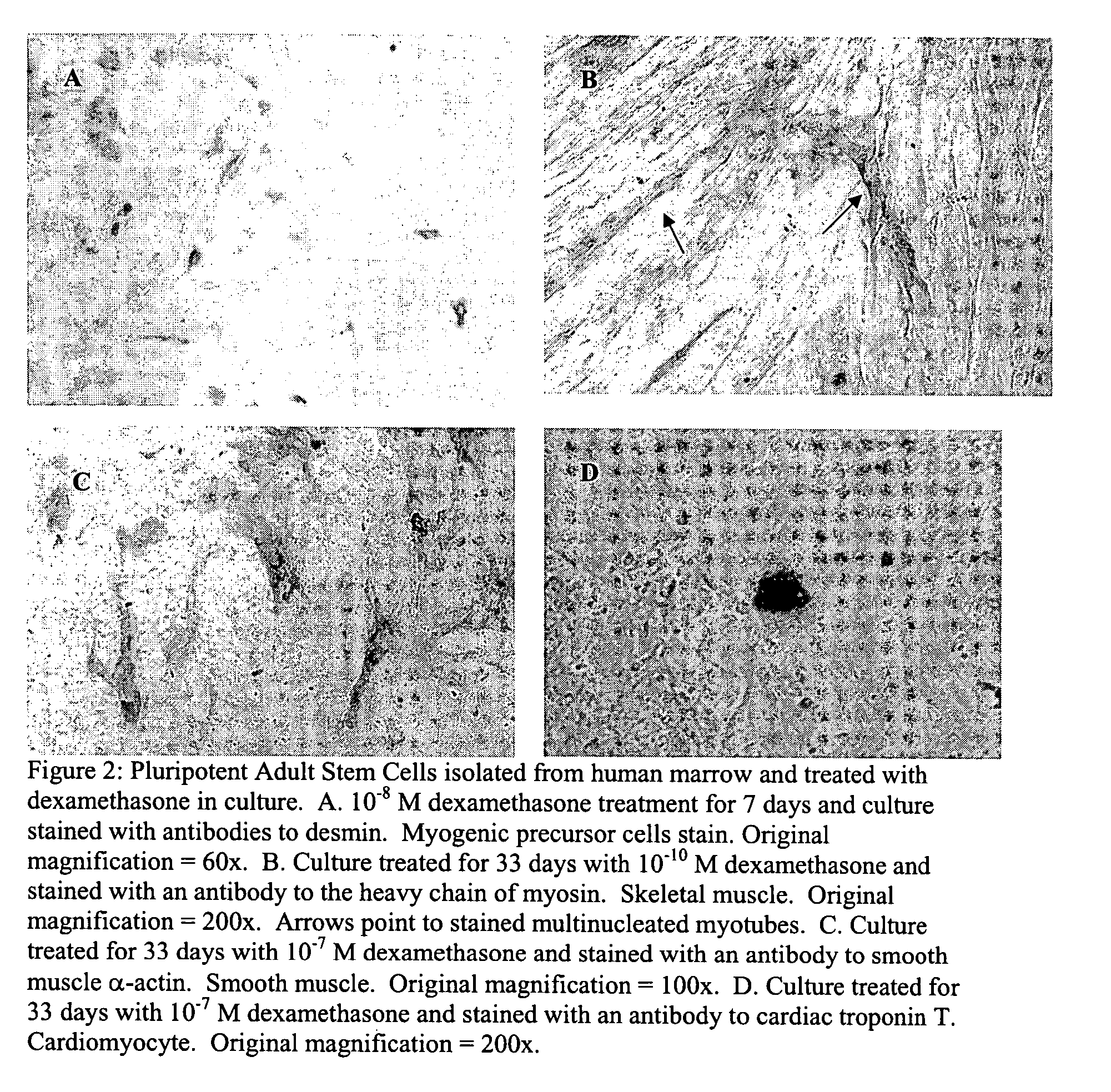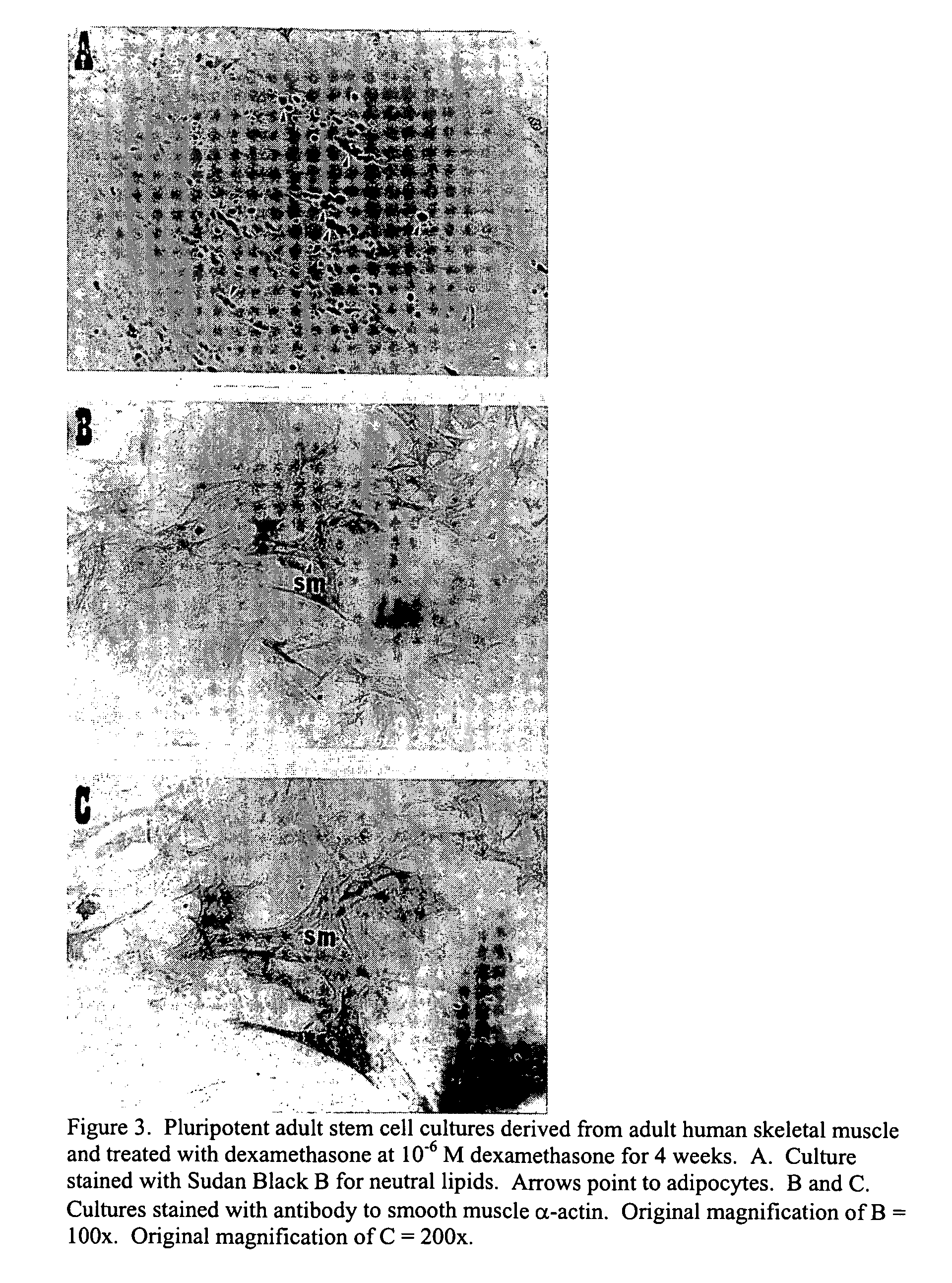Pluripotent adult stem cells
a stem cell and adult technology, applied in the field of pluripotent adult stem cells, can solve the problems of inability to direct the differentiation of cells, cost hundreds of millions of dollars a year in addition to the loss of patient quality of life, and cannot differentiate in all three germ lineages, endodermal, mesodermal and ectodermal lineages
- Summary
- Abstract
- Description
- Claims
- Application Information
AI Technical Summary
Benefits of technology
Problems solved by technology
Method used
Image
Examples
example 1
Materials and Methods
[0043]Institutional Review Board approval from New York Medical College was garnered prior to procurement of specimens. Specimens were obtained from intra-operative tissue samples obtained as surgical discards in open reduction internal fixation procedures, or (for two bone marrow samples) diagnostic procedures, performed by surgeons at Westchester Medical Center. Tissue samples were obtained from 12 subjects (Table 1). Ten subjects were male and two were female. Subjects ranged in age from seven days to 73 years old (median 35 years, mean 31.05 years). Tissue specimens consisted of primarily skeletal muscle ranging in size 1 to 10 ml. One specimen consisted of muscle and scar tissue, which after processing, was predominantly scar tissue. Three samples consisted of bone marrow. One specimen was foreskin from the seven day old subject. Two samples did not have viable cells after the enzymatic digestion and two samples became contaminated in culture on day 1.
[0044...
PUM
| Property | Measurement | Unit |
|---|---|---|
| time | aaaaa | aaaaa |
| pH | aaaaa | aaaaa |
| composition | aaaaa | aaaaa |
Abstract
Description
Claims
Application Information
 Login to View More
Login to View More - R&D
- Intellectual Property
- Life Sciences
- Materials
- Tech Scout
- Unparalleled Data Quality
- Higher Quality Content
- 60% Fewer Hallucinations
Browse by: Latest US Patents, China's latest patents, Technical Efficacy Thesaurus, Application Domain, Technology Topic, Popular Technical Reports.
© 2025 PatSnap. All rights reserved.Legal|Privacy policy|Modern Slavery Act Transparency Statement|Sitemap|About US| Contact US: help@patsnap.com



